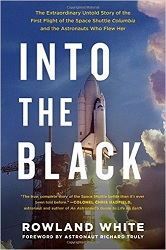If you have read any of the histories of Project Apollo, you know it was epic. In a few short years they created technologies that didn’t exist, and strapped men to dangerous machines. No fancy computers to aid them, every part was designed on paper, guided by math and physics.
Then it ended.
Mission accomplished, the government no longer saw the value of continuing at the pace established. Politicians only worry about the next election, not the future of humanity. Had the innovation continued, and Saturn 5s still rolled off the production line, we the people of the year 2023 A.D., wouldn’t be talking about “returning to the Moon,” or planning to go to Mars.
We would have never left the magnificent lunar dunes, and we’d have outposts in the red seas of Mars.
Now we are going back to the future. The Long Delay is Nearly Over.
For decades after Apollo, we suffered what Alex Dubin dubbed, “space policy whiplash.” Every administration and Congress unveiled a new plan, while terminating the previous one. Long term goals and dates were sometimes set, but they were so far out, they quickly faded into deep space. Programs floundered in the space industrial complex. There is no motivation for innovation and efficiency in a system that hands out government checks, only to change the plan every few years. Politicians saw NASA as just another jobs program to tout on the campaign trail.
NASA’s Artemis rocket is a wonder to be sure. Powerful and capable, it’s also immensely expensive and non-reusable. Designed to build off decades old shuttle technology simply to preserve the old system for just a few more years, it will be NASA’s last legacy project. Soon it will be supplanted by SpaceX‘s Super Heavy.
I remember back in the ’90s, as a member of the National Space Society, trying to convince the government space travel was important. One time, after one campaign, the International Space Station survived cancelation by one vote. Trying to get NASA to change was hard. We saw progress in interplanetary exploration, launching armadas of probes. Efforts to build next-generation, reusable spacecraft failed. Human Mars mission efforts came and went, even though perfect plans like Mars Direct were created. In the context of government-funded spaceflight, the future was delayed and never appeared on the horizon.
Or perhaps there was a glimmer of sunlight as we called for new legislation laying the groundwork for expanded privatization and commercialization of space. This was done and commercial satellites had already made billions, but sending people into space was dangerous and expensive, and only the government could accomplish such feats. Of course, as with most things the government claimed only it could do, there was much skepticism to be had.
The only truth to their claims is it was expensive to fly into space. Yet little effort had been made to bring rocketry into the 21st Century.
Then Elon Musk came along. He had money. He had a vision. More importantly, he had grit.
The aerospace industrial complex wouldn’t go quietly into the night. They thought their gravy train would never end. As Ashlee Vance, writes, “…Musk obviously rammed a new philosophy of doing business right down their throats.” The philosophy of free markets. SpaceX would fly more rockets in a few months, than had been shot off in previous decades combined.
Lori Garver, former executive director of the National Space Society, tried to change hearts and minds from the inside as NASA Deputy Administrator. It was a rough go, but NASA went from scoffing at the likes of SpaceX, to talking as if they were for change all along. Perhaps they don’t truly see what is coming. NASA of Space 2.0 won’t be the same NASA of Apollo, the shuttle, or the ISS. It will be forced — I mean transformed — back into what it was designed to do: Foster innovation and seed new technologies, and continue to explore the Solar System. For now, at least.
Once the door was kicked open, or rather broken off, there was no turning back. Vance’s new book details the upstarts at Planet Labs, Firefly, Astra, and Rocket Labs who followed SpaceX. Much like the First Space Age, the Second is full of drama, colorful characters, explosions, and grand victories. This time, though, unburdened by government bureaucracy and thoughtless politicians, the only thing in the way of these rocket engineers is gravity.
It has been a long wait. Apollo is almost mythical now. Young generations think their phones are the pinnacle of technology. Yet, while they look at TikTok videos, their grandparents, or great-grandparents, sent men to the Moon with slide-rules.
Now we are at the doorstep of the entire Terran Solar System. Its mineral wealth. Helium-3 that could power humanity for centuries. Protecting and understanding Earth. Spaceflight isn’t a luxury, it’s a necessity. We can’t pretend otherwise anymore.
We have permission to think grand thoughts again. Not just think about them, but make them our reality.








